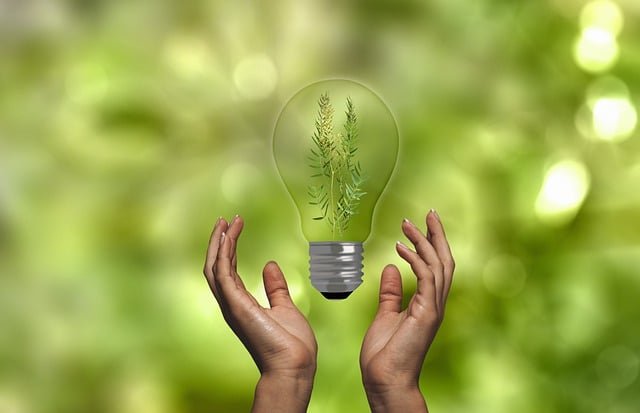Circular Economy Practices: What You Need To Know
In the era of sustainable development, Circular Economy practices have emerged as a pivotal force, redefining the way we approach consumption, waste, and resource management. This article explores the profound impact of Circular Economy practices on sustainable development and envisions a future where our economy is in harmony with the environment.
Understanding Circular Economy
Circular Economy revolves around the principles of minimizing waste and maximizing resource efficiency. Unlike the traditional linear economy, which follows a ‘take, make, dispose’ model, a circular economy aims to close the loop by promoting recycling, reusing, and reducing waste generation.

Circular Economy practices make a substantial contribution to environmental sustainability.
1. The Impact on Environmental Sustainability
Shifting from Waste to Resource
Circular Economy practices significantly contribute to environmental sustainability. By treating waste as a valuable resource, we mitigate the ecological burden of landfills and reduce the need for raw material extraction, ultimately lowering carbon footprints.
2. Circular Economy in Business Models
Redefining Corporate Strategies
Companies worldwide are integrating Circular Economy principles into their business models. This shift not only aligns with environmental goals but also proves economically viable. From product design to supply chain management, businesses are adopting circular practices to minimize environmental impact.
3. Success Stories of Circular Economy Implementation
Closing the Loop: Real-world Examples
Examining successful cases of Circular Economy implementation showcases the tangible benefits. Highlighting companies that have seamlessly integrated circular practices, we draw inspiration from their achievements and strategies.
4. Challenges and Solutions
Navigating Obstacles for a Greener Tomorrow
While Circular Economy brings numerous benefits, challenges exist. Explore the hurdles faced by businesses and governments in adopting circular practices and the innovative solutions developed to overcome these obstacles.
5. Government Initiatives and Policies
Legislative Frameworks for Circular Economy
Governments play a crucial role in shaping sustainable development. Delve into global initiatives and policies aimed at promoting Circular Economy practices, fostering collaboration between public and private sectors.
6. Future Prospects
Paving the Way Forward
What does the future hold for Circular Economy practices in sustainable development? Analyze emerging trends, technologies, and collaborations that indicate a promising trajectory towards a more circular and sustainable global economy.
7. Embracing Circular Economy at the Individual Level
Empowering Change Through Everyday Choices
Individuals play a vital role in the circularity journey. Explore how adopting sustainable habits, such as recycling, upcycling, and conscious consumption, contributes to the broader Circular Economy narrative. By understanding the impact of personal choices, readers can actively participate in the movement towards sustainability.
8. Collaborative Efforts: Industry Partnerships
Building Alliances for a Circular Revolution
Circular Economy practices thrive on collaboration. Investigate industry-wide partnerships that leverage collective resources, knowledge, and influence to drive circular initiatives. Highlighting successful collaborations underscores the importance of shared responsibility in achieving sustainable development goals.
9. Technology’s Role in Advancing Circular Practices
Harnessing Innovation for Sustainability
Technological advancements play a pivotal role in the success of Circular Economy practices. Explore cutting-edge innovations, such as blockchain for supply chain transparency and AI-driven recycling solutions, that amplify the efficiency and effectiveness of circular initiatives.
10. Metrics and Measurement: Tracking Circular Success
Establishing Key Performance Indicators (KPIs)
Measuring the impact of Circular Economy practices requires robust metrics. Delve into the development and adoption of key performance indicators (KPIs) that enable businesses and governments to quantify their circular achievements. Transparent reporting ensures accountability and facilitates continuous improvement.
11. Overcoming Consumer Resistance
Education as a Catalyst for Change
Consumer resistance can pose a challenge to widespread adoption of Circular Economy practices. Explore educational campaigns and initiatives that empower consumers with knowledge, dispelling misconceptions and fostering a greater understanding of the positive impact of circular choices.
12. Global Perspectives: Case Studies Across Continents
A Diverse Tapestry of Circular Initiatives
Examine Circular Economy practices on a global scale, exploring case studies from different continents. Recognizing the diverse approaches to sustainability provides a comprehensive understanding of the universal applicability and adaptability of circular principles.
13. Empowering Change
Inspiring Readers to Join the Circular Movement
Conclude the article by issuing a call to action. Encourage readers to take concrete steps towards embracing Circular Economy practices in their personal and professional lives. Provide resources, links, and recommendations for further exploration and engagement.
Wrapping Up
In this exhaustive exploration of Circular Economy practices in sustainable development, we’ve journeyed through the principles, applications, challenges, and successes that define this transformative approach. The circular paradigm offers a blueprint for a regenerative and sustainable future, where waste is minimized, resources are optimized, and environmental impact is mitigated.
As you embark on your own circular journey, remember that every contribution, no matter how small, plays a part in the larger narrative of sustainable development. Together, as individuals, industries, and nations, we can usher in an era where the circular economy is not just a concept but a way of life.


